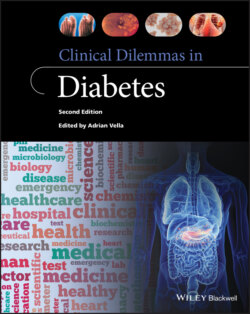Читать книгу Clinical Dilemmas in Diabetes - Группа авторов - Страница 40
The Role of Vitamin D Deficiency
ОглавлениеSeveral epidemiological studies have described an intriguing correlation between geographical latitude and the incidence of T1D and an inverse correlation between monthly hours of sunshine and the incidence of diabetes. A seasonal pattern of disease onset has also been described for T1D, once again suggesting an inverse correlation between sunlight and the disease [16]. Vitamin D is an obvious candidate as a mediator of this sunshine effect.
Dietary vitamin D supplementation is often recommended in pregnant women and in children to prevent vitamin D deficiency. Cod liver oil taken during the first year of life reportedly reduced the risk of childhood‐onset T1D and a multicenter case‐control study also showed an association between vitamin D supplementation in infancy and a decreased risk of T1D. Two further meta‐analyses of retrospective studies showed that the risk of T1D was lower in children who were supplemented with calcitriol compared with those who were not supplemented [17]. Nonetheless, it remains to be determined whether these observations are the result of supplementation of vitamin D to supraphysiological levels or are simply the result of the prevention of vitamin D deficiency. On that note, other clinical studies reported no effect of vitamin D supplementation on β‐cell function in recent‐onset T1D [18]. In summary, despite continuing interest in vitamin D supplementation as a potential intervention to prevent islet autoimmunity and T1D, there is still little supporting evidence from prospective birth cohort studies.
